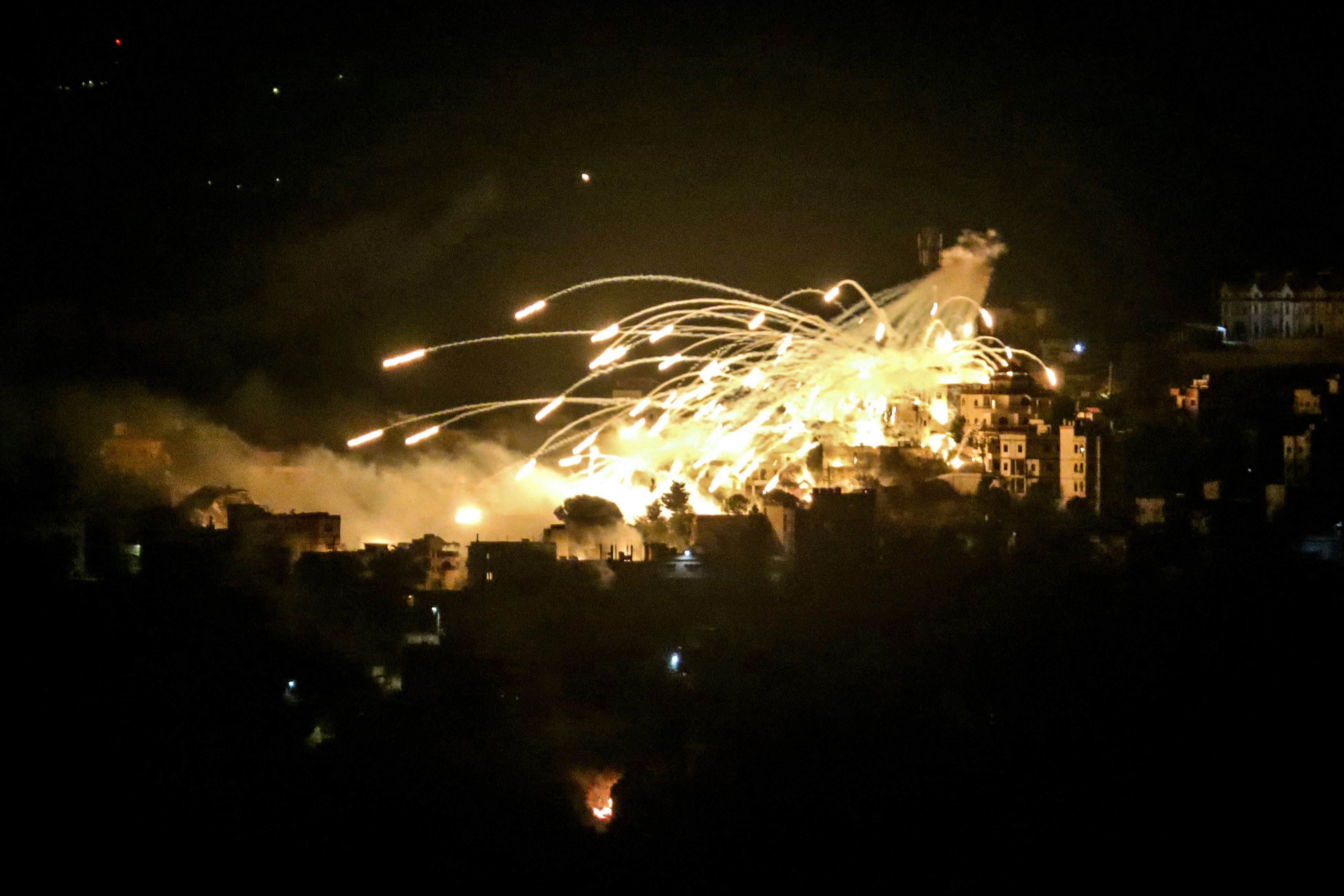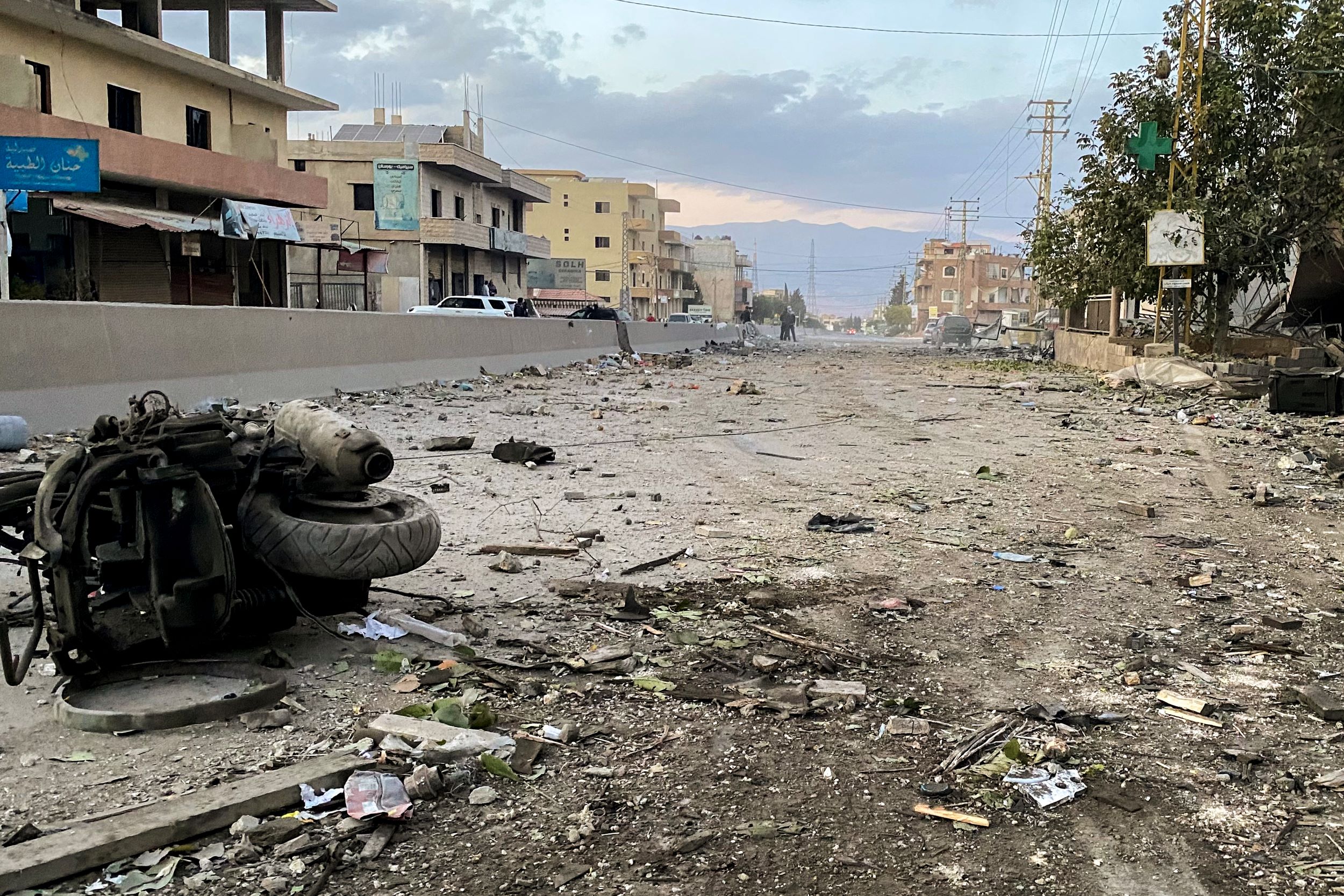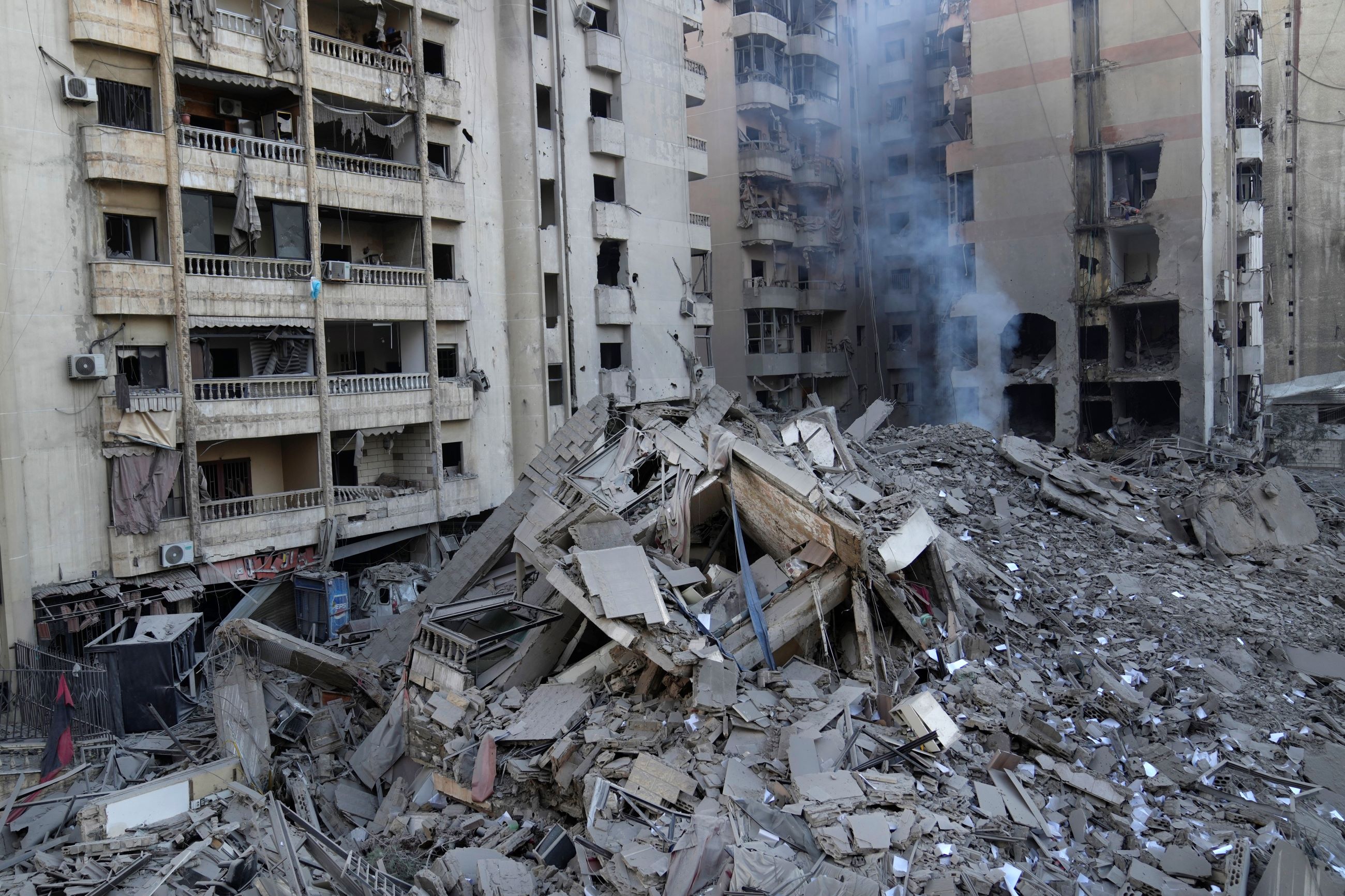
BEIRUT - Israeli Prime Minister Benjamin Netanyahu told US envoys on Thursday that Israel's ability to counter threats to its security from Lebanon and return displaced people to the north were key elements of any ceasefire deal with Lebanon.
He was speaking shortly after a Hezbollah attack on northern Israel's Metula killed five people including an Israeli farmer and four foreign workers, while two more civilians were killed by shrapnel near the town of Kiryat Ata, Israeli authorities said.
Meanwhile, Beirut said a series of Israeli strikes had killed six health workers in southern Lebanon.
READ MORE: UNRWA says Israeli forces damaged its West Bank office; Israel denies
"The main issue is ... Israel's ability and determination to enforce the agreement and thwart any threat to its security from Lebanon," Netanyahu's office cited him as telling two US envoys.
The envoys, Brett McGurk and Amos Hochstein, were in Israel on a new push to secure ceasefires in both Lebanon and Gaza. Lebanon's prime minister on Wednesday expressed hope that a ceasefire deal was imminent.
Sources previously told Reuters that talks for Lebanon were centered on a 60-day pause to allow for the implementation of UN Security Council Resolution 1701, which would entail Hezbollah withdrawing its armed presence from south of the Litani River.
ALSO READ: Leaked draft stokes hope for Israel-Lebanon truce
US Secretary of State Antony Blinken on Thursday said there had been progress toward understanding how to effectively implement the resolution.
"It's important to make sure we have clarity, both from Lebanon and from Israel, about what would be required under 1701 to get its effective implementation," Blinken told a press conference.
"I can tell you that based on my recent trip to the region, the work that's ongoing right now, we have made good progress on those understandings."
While good progress had been made, there was still more work to do, Blinken said.
ALSO READ: Palestinian authority supports efforts for Gaza ceasefire, PM says
The diplomatic push comes amid intensifying fighting between Israel and Hezbollah, which has run in parallel to Israel's war in Gaza against Hamas militants that has left the tiny enclave in ruins and caused a humanitarian crisis.

Lebanon's health ministry said Israeli attacks killed 45 people over the prior day, bringing the total for the past year to 2,865.
The UN humanitarian agency said Israel ordered Palestinians in the Rashidiyeh refugee camp in southern Lebanon to evacuate, the first mass Israeli evacuation order for an entire camp in Lebanon.
Deadly Israeli strikes have already hit other Palestinian camps in the country, including in Beirut’s southern suburbs.
Bombardment
Israel bombarded areas around the eastern city of Baalbek on Thursday for a second consecutive day after issuing evacuation notices.
On Wednesday it conducted heavy airstrikes targeting Hezbollah in and around the city, which is famed for its Roman temples.
Dozens of cars could be seen speeding out of the area after Thursday's warning, with wafts of black smoke still visible emanating from the town of Douris, where an Israeli strike the previous day destroyed Hezbollah fuel stocks, according to the Israeli military and a Lebanese security source.
READ MORE: Famine stalks Gaza amid aid curbs
Thousands fleeing the violence have sought shelter in the nearby Christian-majority town of Deir al-Ahmar, where local official Jean Fakhry said authorities were struggling to cover even a fraction of their needs and some people had to spend the night in their cars.
"We cannot continue this way," Fakhry said.

Hezbollah said it had launched several rocket and artillery attacks against Israeli forces near the southern town of Khiyam. It marked the fourth straight day of fighting in and around the strategic hilltop town, which is home to one of the largest Shi'ite communities in southern Lebanon.
READ MORE: Gaza humanitarian crisis could develop into famine, WFP says
The mayor of the Lebanese border town of Wazzani, south of Khiyam, said he had pleaded with authorities to evacuate more than 20 people, most of them women and children, who were stuck in the crossfire but Lebanese authorities said Israel had not responded to his appeal.
"We keep asking for them to be helped but it's like we're in a jungle. No one listens," Mayor Ahmed Mohammed told Reuters.
Hezbollah aims to keep Israeli forces out of Khiyam to prevent them from detonating homes and buildings, as has happened on a large scale in other border towns, a source familiar with the group's thinking told Reuters.
Hezbollah says its fighters have prevented Israel from fully occupying or controlling any southern villages, while Israel says it is carrying out limited ground operations aimed at destroying the group's infrastructure.


